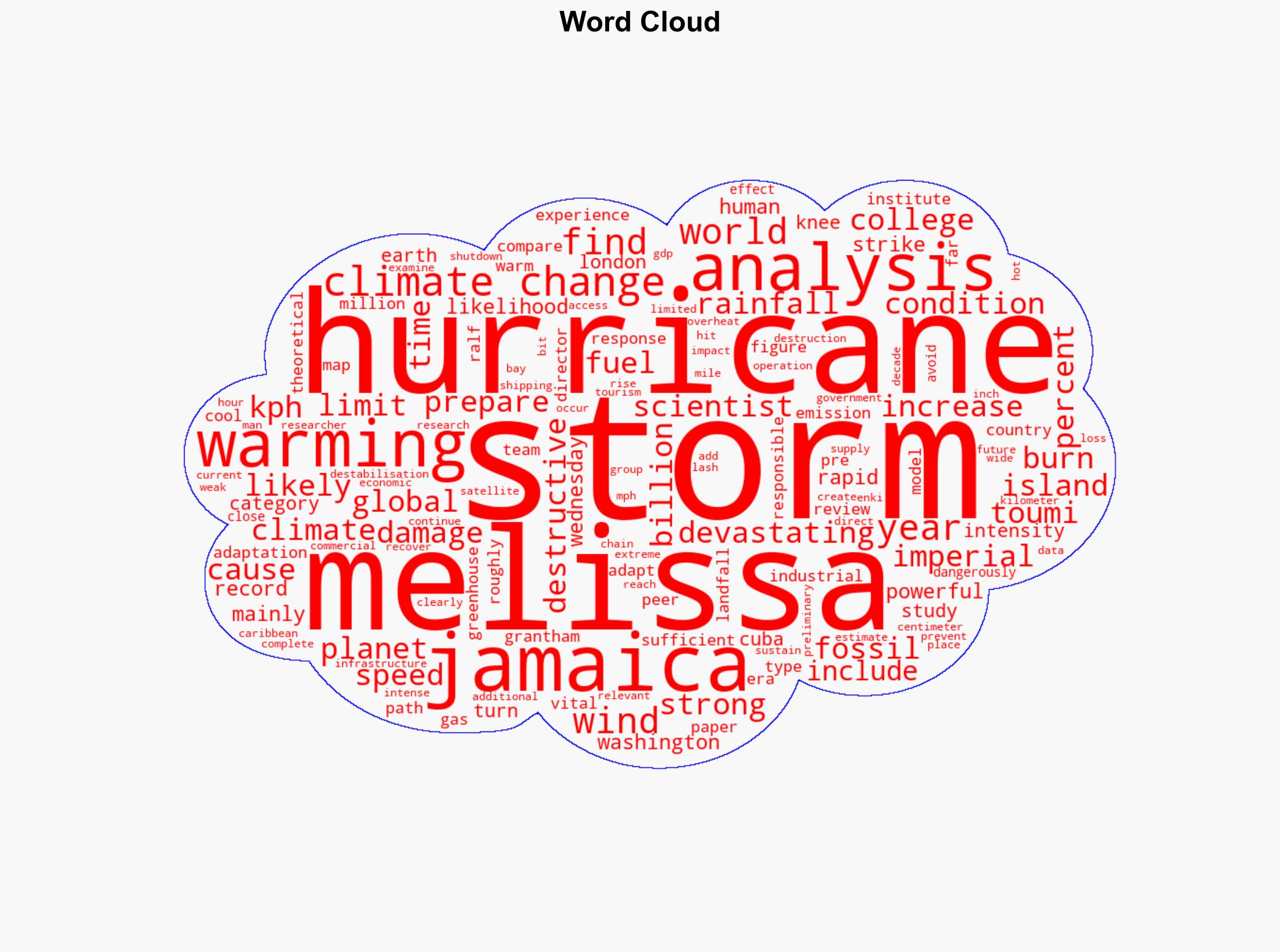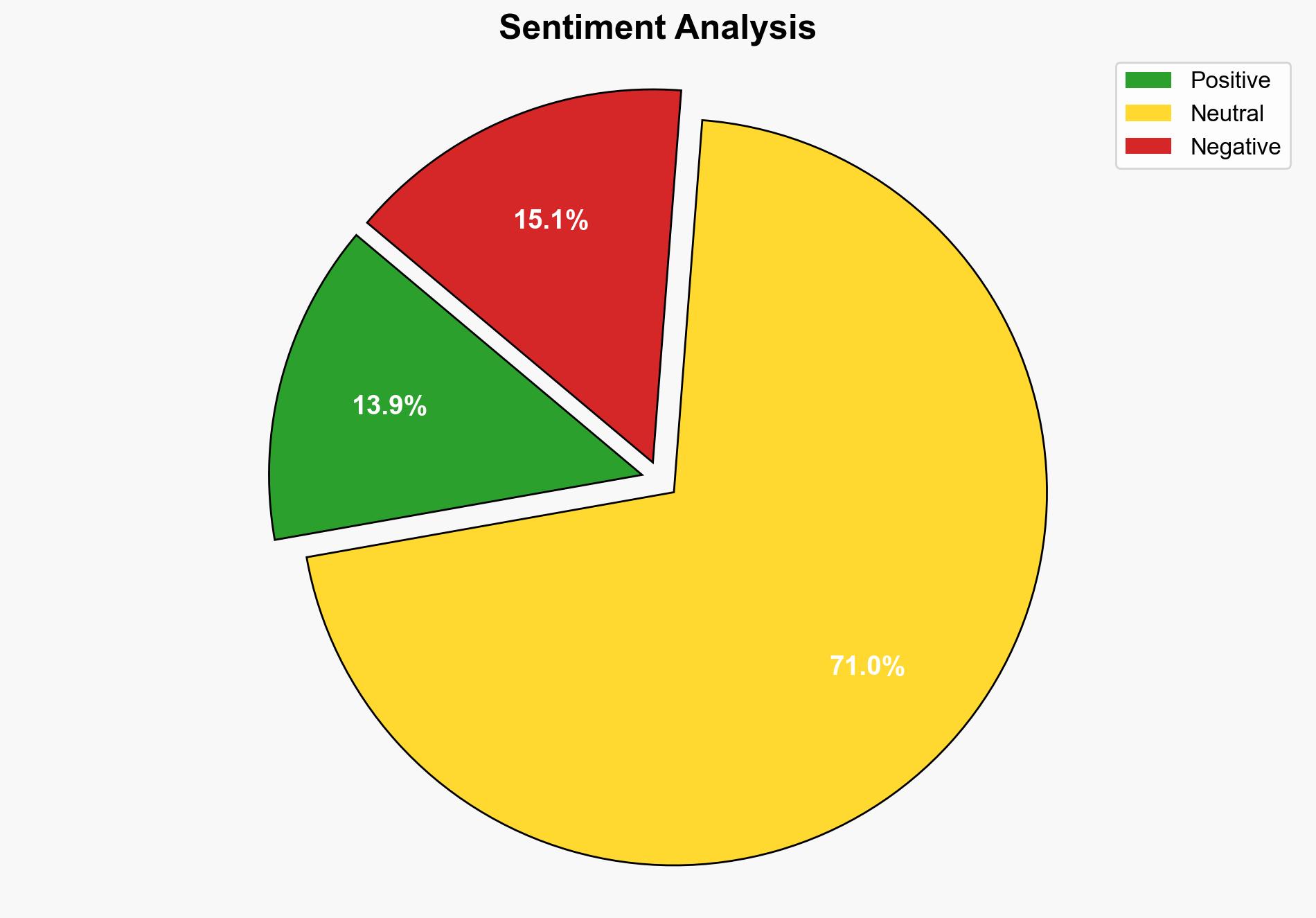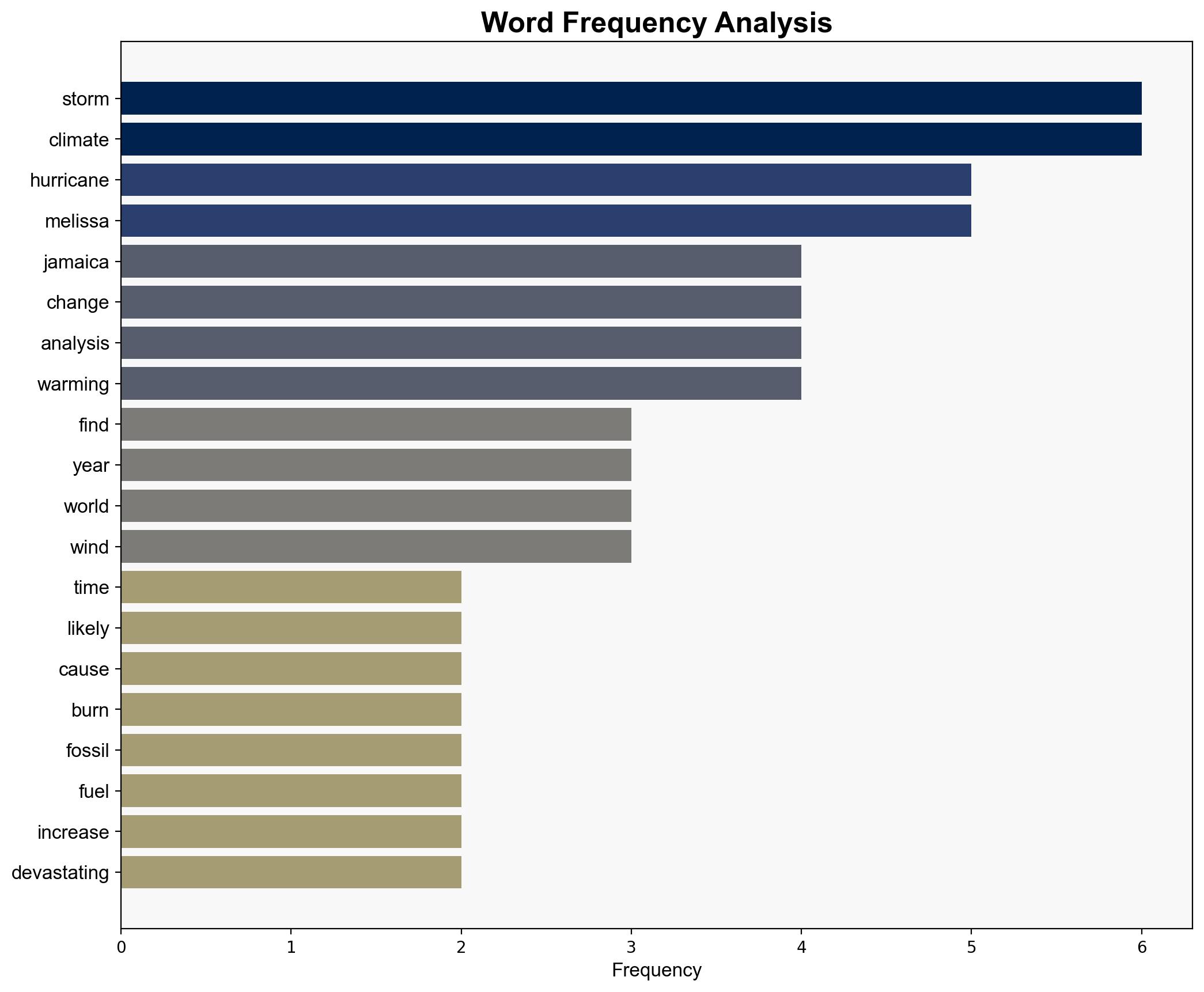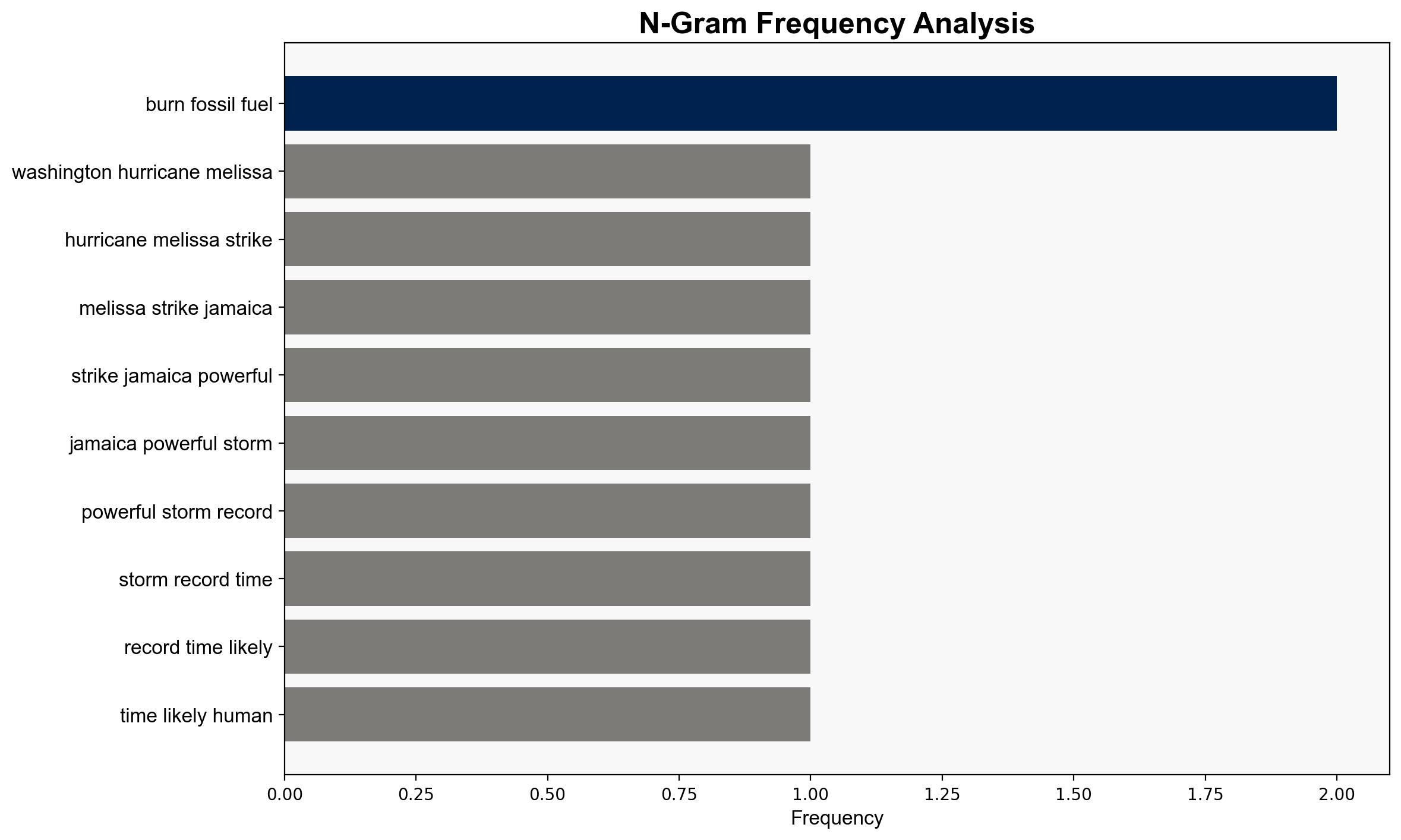Climate change made Hurricane Melissa four times more likely study – The Times of India
Published on: 2025-10-30
Intelligence Report: Climate change made Hurricane Melissa four times more likely study – The Times of India
1. BLUF (Bottom Line Up Front)
The analysis suggests that climate change significantly increased the likelihood and intensity of Hurricane Melissa, with a high confidence level in the hypothesis that human-induced global warming is a primary factor. Strategic actions should focus on enhancing climate adaptation measures and reducing greenhouse gas emissions to mitigate future risks.
2. Competing Hypotheses
Hypothesis 1: Human-induced climate change, primarily from fossil fuel emissions, has increased the frequency and intensity of hurricanes like Melissa, making such events more likely and severe.
Hypothesis 2: Natural climate variability, independent of human influence, is the primary driver of the increased frequency and intensity of hurricanes like Melissa.
Using ACH 2.0, Hypothesis 1 is better supported due to the correlation between rising global temperatures and increased hurricane activity, as well as the peer-reviewed models indicating a significant increase in storm likelihood in a warmer world. Hypothesis 2 lacks substantial evidence and does not account for the rapid warming trends observed.
3. Key Assumptions and Red Flags
Assumptions:
– The models used accurately represent the relationship between climate change and hurricane activity.
– The data on fossil fuel emissions and global temperature rise are reliable and comprehensive.
Red Flags:
– Potential bias in attributing all hurricane intensity increases to climate change without considering other factors.
– Limited access to satellite data due to government shutdown may have affected the comprehensiveness of the analysis.
4. Implications and Strategic Risks
The increased likelihood of severe hurricanes poses significant risks to economic stability, particularly in vulnerable regions like the Caribbean. This could lead to prolonged recovery periods and increased economic losses, affecting global supply chains and tourism. Geopolitically, countries may face increased pressure to implement climate policies, potentially leading to international tensions.
5. Recommendations and Outlook
- Enhance climate adaptation infrastructure in vulnerable regions to mitigate damage from future hurricanes.
- Accelerate global efforts to reduce greenhouse gas emissions to limit further climate change.
- Scenario Projections:
- Best Case: Successful global emission reductions lead to stabilization of hurricane frequency and intensity.
- Worst Case: Continued emissions result in more frequent and severe hurricanes, overwhelming adaptation efforts.
- Most Likely: Incremental improvements in emission reductions and adaptation measures mitigate some, but not all, future risks.
6. Key Individuals and Entities
Ralf Toumi, Imperial College London, Grantham Institute
7. Thematic Tags
climate change, environmental risk, disaster preparedness, global warming, economic impact




